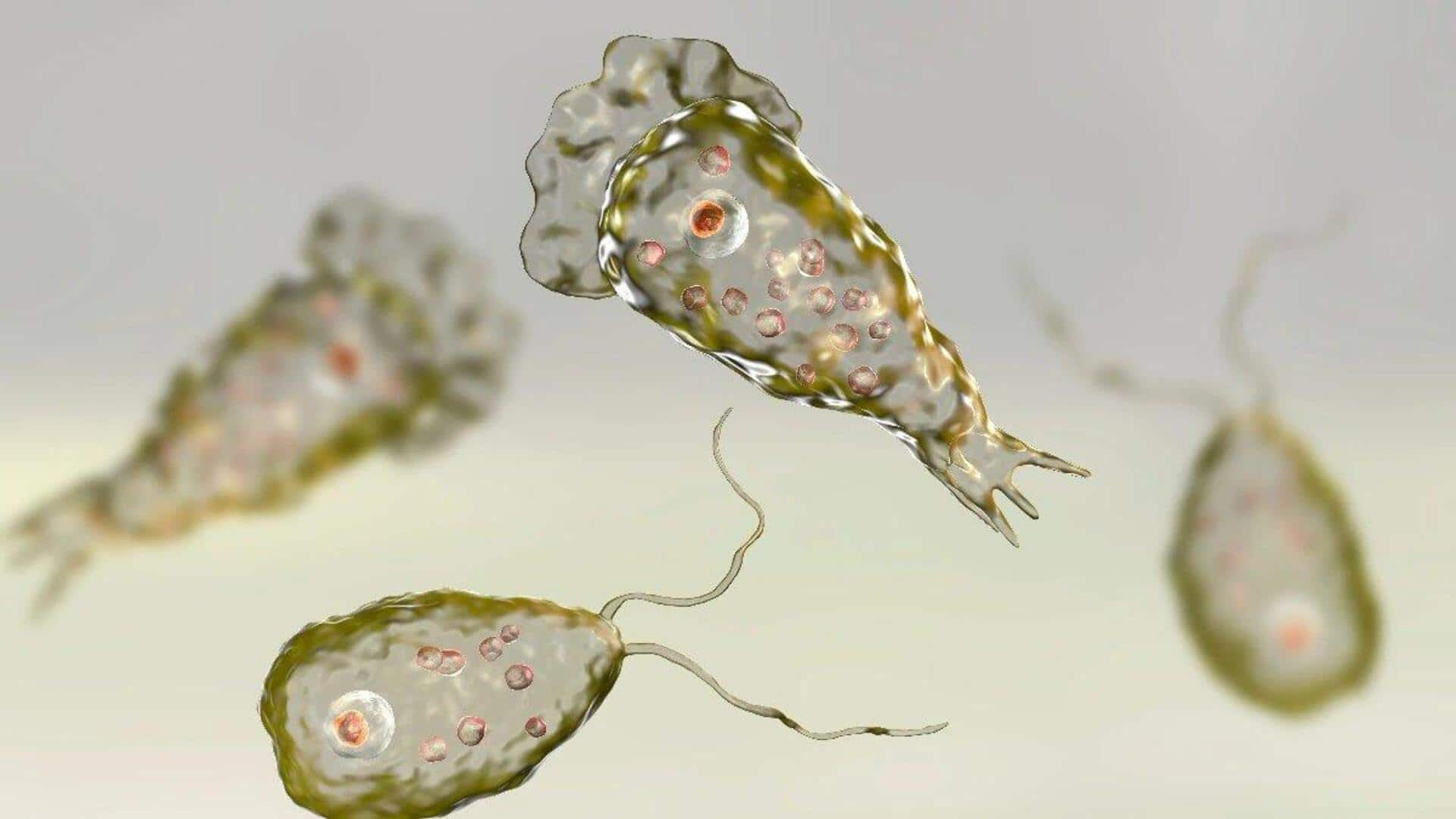
Kerala brain-eating amoeba scare: why stagnant freshwater poses deadly risk
What's the story
Kerala is battling a deadly outbreak of Primary Amoebic Meningoencephalitis (PAM), a rare and often fatal brain infection caused by the Naegleria fowleri parasite. The state has reported 80 cases and 21 deaths due to this infection. State Health Minister Veena George attributed the rise in cases to stricter surveillance measures introduced in 2023, which mandate reporting all encephalitis cases and determining their causes.
Infection details
How does Naegleria fowleri infect humans?
Naegleria fowleri, also known as the "brain-eating amoeba," thrives in warm, stagnant freshwater bodies such as ponds and lakes. The parasite enters the body through the nose during swimming or bathing in contaminated water. From there, it travels through olfactory nerves to the brain where it destroys tissue and causes inflammation. In very rare cases, people have become infected from other water sources such as tap water containing Naegleria fowleri, splash pads, and a surf park that lacked adequate chlorine.
Infection
Majority die between one to 18 days
Headache, fever, nausea, and vomiting are some of the early signs of PAM, according to the US CDC. PAM advances fast. The majority of persons with PAM die between one to 18 days of symptom onset, and it leads to a coma and death after five days. Symptoms of PAM include stiff neck, disorientation, lack of attention to persons and surroundings, loss of balance, and hallucinations. However, one cannot get a Naegleria fowleri infection from swallowing water containing the ameba.
Preventive measures
Treatment and guidelines for PAM cases
For early detection of Naegleria fowleri, Kerala has ramped up its testing facilities to include PCR tests. Technical guidelines were issued in 2024 for the identification and treatment of PAM. The guidelines recommend immediate cerebrospinal fluid (CSF) tests for suspected cases and aggressive treatment with antimicrobials and supportive care. Public awareness campaigns are also underway to educate residents about the risks associated with untreated natural water bodies.